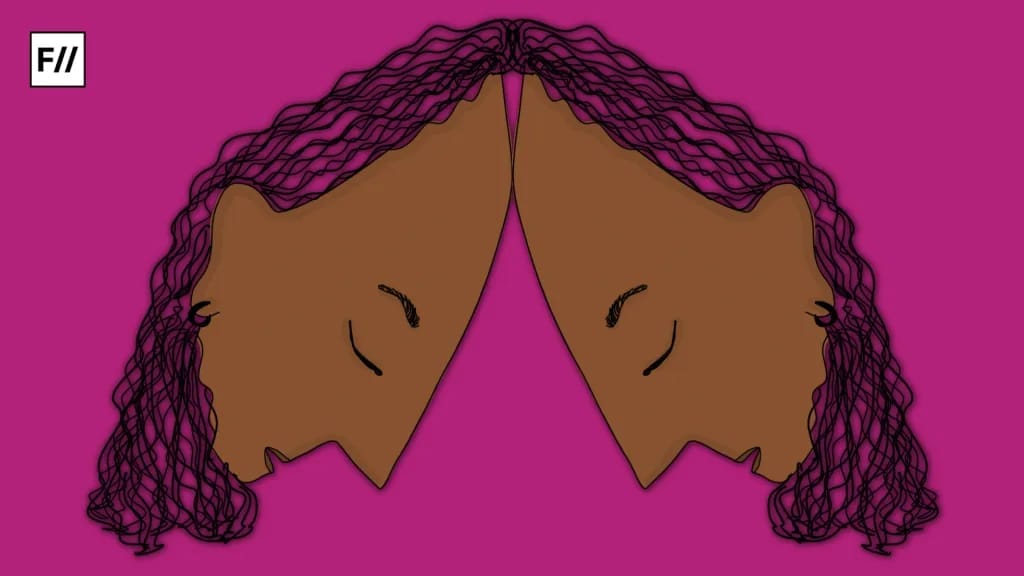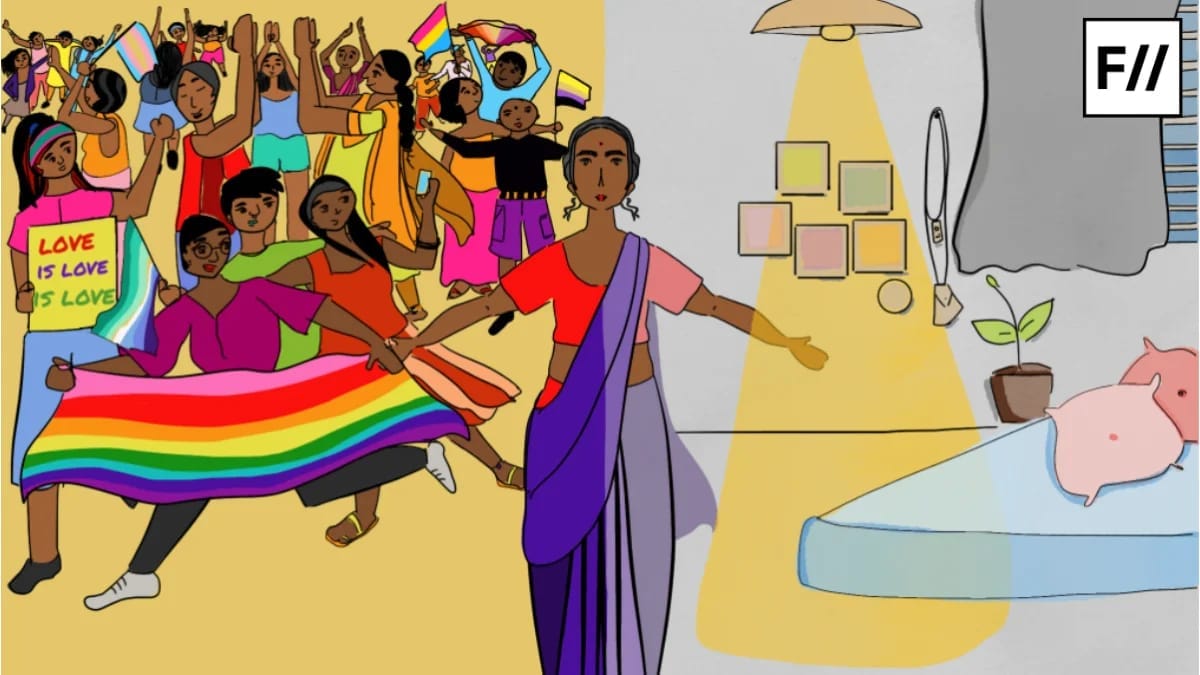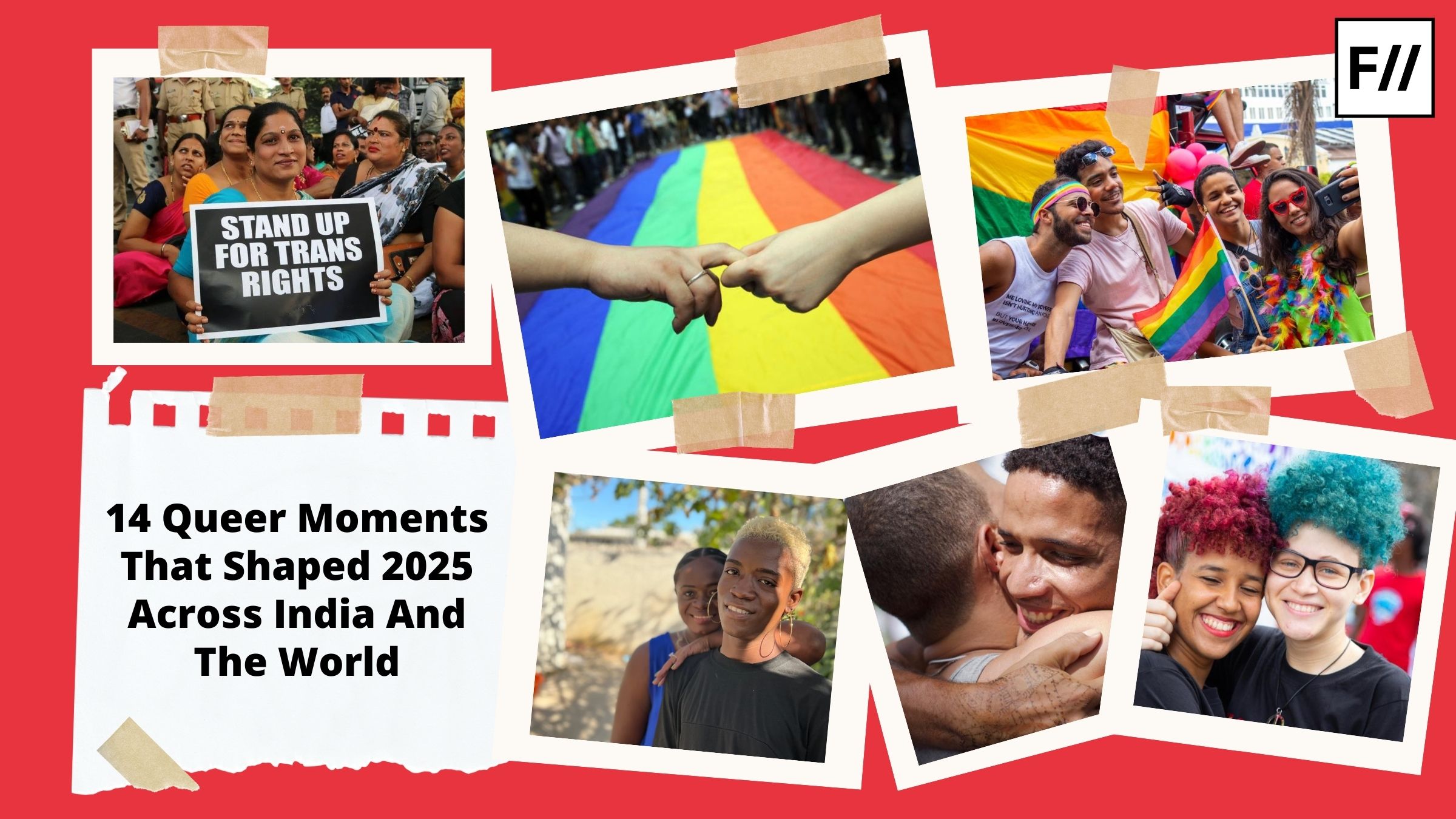A recent vote conducted by the United Nations Human Rights Council led to the renewal of the Independent Expert on protection against violence and and discrimination based on sexual identity and gender identity (SOGI), for the upcoming three years. While a joyous occasion to behold, India’s abstention in 2016, 2019, and 2022, is a cause for worry. Although not a member of the UNHRC, as of 2025, the government’s erratic stance on the protection of the LGBTQIA+ citizenry paints a debilitating picture of the country’s marginalised communities. The abstention not only represents the lack of accountability but also complacency of the government to stand up against homophobia and violence, despite their recorded willingness of working towards sensitisation.
The Independent Expert (SOGI) was set up in the year 2016, and has been renewed since then, every three years. From undertaking field visits to reporting on the existing battles that impede individual freedom to the assessment of the implementation of the international human rights law, the IE(SOGI), whose mandate is currently held by Graeme Reid, has readily shown up and presented reports written on the basis of on-field investigation. While the country’s citizenry can benefit from the mandate, its withdrawal from voting on an international stage suggests how little importance they accord to the marginalised community.

The IE(SOGI), at a time when right-wing governments have been actively trying to put an end to research and discussions on Gender and Sexuality, while some vow to exclude transgender identities, the expert committee requires all the support it can gather.
How feminist is India’s foreign policy?
The Feminist Foreign Policy (FFP) was heralded by Sweden in 2014, and a few other countries followed suit. With their emphasis on leveraging women, and an intention to reduce gender-disparity, the FFP was designed keeping the women’s question in mind. Sweden’s inroads into the FFP came to a standstill when its right-wing government came to power in 2022, and withdrew it. Similarly, right-wing reactionary forces, internationally, are mulling their policies regarding women and the marginalised. India, is yet to introduce a feminist foreign policy, and with the same government that has been presiding over the last few years, they need to be held accountable.
While the abstention from voting in 2016, they argued, was due to the reason that the issue of decriminalisation was sub-judice, their argument looked like a leeway to not provoke the religious conservatives, who served as their vote bank. The abstention in 2019, and 2022, came through despite the 2018 decriminalisation of homosexuality by scrapping Section 377 of the Indian Penal Code.
The 2019 abstention had come with no official rationale, and the 2022 abstention, followed through, in a similar fashion. Prior to the IE(SOGI) vote in 2019, activists and members of the opposition parties, including members of the parliament (MPs), Shashi Tharoor, and Supriya Sule, had urged the government to take a step towards ensuring protection of the community, which seemed to have fallen on deaf ears. By signing a petition, using the online platform change.org, people had urged the government to vote for inclusivity.
By signing a petition, using the online platform change.org, people had urged the government to vote for inclusivity.
Although the UNHRC does not comprise India, in 2025, India had often voted “affirmatively” to some amendments introduced by the OIC (Organisation of Islamic Conference) states. While criticising the OIC on matters of “territorial” disputes, we have had no qualms agreeing to their proposed amendments in respect to the IE(SOGI). This goes on to prove that religious conservatives, belonging to different religious institutions, are two sides of the same coin, and that they can mutually co-exist, standing against the LGBTQIA+ community. The solidarity of religious conservatives were also witnessed during the Supreme Court hearing of Section 377 and its unconstitutionality.

While the AIMPLB( All India Muslim Personal Law Board) and the Jamaat-e-Islami Hind, stood vociferously against it, RSS nuanced its stance by hailing it as an activity “against nature” but not “criminal”. We seem to be dealing with hard and soft religious conservatism.
Our inroads into building a Feminist Foreign Policy cannot be defined by the Western framework since a de-colonial understanding of women’s contribution and the inclusion of gender-diverse individuals is pertinent to building structures that last. In 2021, our External Affairs Minister, Dr. S. Jaishankar, was quoted saying, ‘I agree that we need to look at the world from the perspective of women, we need a gender-balanced foreign policy. We need to look at three things here: Getting more women to engage with foreign policy issues, reflect women’s interests in foreign policy, and bring in a feminist perspective to foreign policy.’
It is to be noted that FFP should not begin and end with women’s representation. A Feminist Foreign Policy should also reflect our intention to combat violence and discrimination against LGBTQIA+ individuals.
It is to be noted that FFP should not begin and end with women’s representation. A Feminist Foreign Policy should also reflect our intention to combat violence and discrimination against LGBTQIA+ individuals. This seems to be non-existent in our declaration of our aims that seem to bring forward “gender-balanced” foreign policy. This also reiterates the binarism of gender at an international scale, when Ruth Vanita’s texts have recorded scriptural and historical evidence of gender-diverse individuals. At this point, staying silent is similar to making a political statement that the community is too marginal to care about.
Silencing queer lives
Prior to the Lok Sabha election, the BJP manifesto, couldn’t care any less about the community. The manifesto reveals a token mention of the transgender people and their vow to expand the network of Garima Griha. Due to a lack of funds by the government, existing grihas were forced to shut down, leaving the most vulnerable people to fend for themselves.

On the last day of the last session of the 17th Lok Sabha, Prime Minister Narendra Modi was quoted saying, ‘The transgender community always felt disrespected…and people would avoid these issues. Members of the 17th Lok Sabha expressed concern for them and sought to ensure a better life for them. The world discusses what India has done for transgenders…We have given transgenders an identity. As many as 16,000-17,000 from the community have been given identity cards‘. He also added, ‘We have given Padma Awards to transgenders. They have started receiving the benefits of various government schemes that they didn’t before. They are now living lives of respect‘.
Transgender individuals have been demanding horisontal reservations for long, which has found no mention in their manifestoes. On a regular basis, individuals are harassed by police officials, and the budget cuts in the department, for the current financial year, take away from sensitisation resources. The centre’s stance on the blanket ban on blood donation by transgender individuals and gay men, reflects the respectability they harbour, towards the community. The subtle tactics of pinkwashing, and deliberately staying silent on issues that demand their answer, so as to not “offend” the community, is a political move that recognises their “silence” as complacent.
India’s affirmation of some of the amendments of the OIC should have considered that the member states of the OIC have had allegations of human rights violations against them and by aligning with some of their views, we do support some of their decisions. While the maintenance of diplomatic relations are of utmost necessity, it is essential to realise that human rights are non-negotiables and taking a diplomatic stand on them, is a political move. Approaching a feminist foreign policy for India would mean the development of a de-colonial approach towards women, work, and gender.





